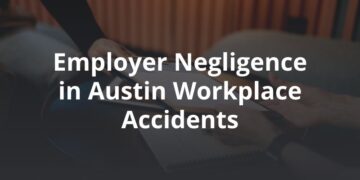Qualified immunity has become a key issue in the national debate over police reform that has emerged in light of recent protests following the death of George Floyd and many others. Here, our lawyers break down qualified immunity, its history, and why it is so important that courts reevaluate this problematic doctrine.
What Is Qualified Immunity?
Qualified immunity is a legal doctrine first established in the case of Pierson v. Ray in 1967, initially created to protect police and other government officials from frivolous or invalid civil lawsuits. The goal was to shield law enforcement from the repercussions of split-second decisions made in good faith under difficult circumstances.
However, the nature of the doctrine and how it has come to be interpreted often makes it difficult or impossible to claim damages in legitimate cases of police misconduct. Essentially, qualified immunity prevents plaintiffs from bringing civil cases to trial against a police officer or other government official for a violation of their rights, unless they have violated a “clearly established” statutory or constitutional right.
But what does “clearly established” mean? In the late 1980s, the Supreme Court heard a series of cases on qualified immunity, most notably Malley v. Briggs and Anderson v. Creighton et al., in which the court upheld the doctrine based on “reasonability.” That is, officers of the law were protected by qualified immunity unless it was reasonable to assume that they should have known their actions were a violation of the plaintiff’s rights.
Why Is Qualified Immunity Problematic?
Over the years, the phrase “clearly established rights” has been distorted to mean that the plaintiff must cite a nearly identical prior case verdict as the burden of proof in cases governed by qualified immunity.
For example, in the case of McCoy v. Alamu, the US Fifth Circuit Court of Appeals ruled that a prison guard accused of pepper-spraying an inmate allegedly “for no reason” was protected under qualified immunity. The rationale for that ruling was that there was no clearly established precedent for the case.
However, the court acknowledged that the allegation, if proven, would violate the Eighth Amendment, which protects against cruel and unusual punishment. In his dissent, Judge Gregg Costa railed against the idea that pepper-spraying an inmate was not a clearly established violation of civil rights. He cited previous cases that upheld the plaintiff’s right to a trial against law officers accused of using excessive force with tasers and batons. Unfortunately, his opinion was in the minority, and McCoy lost the right to bring his civil case before a judge.
This extremely narrow definition of reasonability has kept many from pursuing some measure of justice in cases of police abuse. Although the doctrine only applies to civil cases, members of law enforcement rarely face criminal charges either. In fact, Bowling Green State University criminologist Philip Stinson, who studies officer arrests, found that between 2005 and 2014, only 48 on-duty officers were charged with murder or manslaughter in cases where lethal force was used. However, there have been nearly 1,000 police shootings in just the last year, according to The Washington Post.
The reasons why police officers aren’t brought to trial for criminal charges in cases of excessive or deadly force are varied and up for debate. However, for at least some portion of victims and their loved ones, claiming damages in a civil case is the only way to seek retribution for harms incurred by the police and other government officials. When courts uphold the doctrine of qualified immunity, they often rob plaintiffs of their right to their day in court.
What Does Qualified Immunity Have to Do With Recent Protests?
Qualified immunity is frequently invoked when police officers are accused of using excessive force or other misconduct. This has made it the center of the ongoing debate about police violence against Black Americans and other people of color.
One of the most poignant examples comes from the case of Wayne Jones, a Black man killed by police in Martinsburg, West Virginia, in 2013. Video footage of the incident reveals that Jones, who was schizophrenic, was tased, hit, kicked, placed in a chokehold, and then shot 22 times after an altercation with police. In the video, officers can be heard saying that “the incident would be a ‘cluster’ and they were going to ‘have to gather some f**king story.’”
When Jones’s brothers attempted to sue for damages in a civil case, they were initially denied a court trial under the doctrine of qualified immunity. However, in a move that hopefully reflects a shifting attitude toward these kinds of rulings, federal judges in the Fourth Circuit Court of Appeals reversed that decision, stating that upholding qualified immunity in this case “would signal absolute immunity for fear-based use of deadly force, which we cannot accept.”
More work still needs to be done, however. This June, the US Supreme Court refused to reexamine previous qualified immunity cases, despite the urging of Justices Sonia Sotomayor and Clarence Thomas. The Supreme Court historically has ruled in favor of public opinion, so the more that advocates move the needle, the more likely we are to see lasting reform.
Why Are Personal Injury Lawyers Concerned About Qualified Immunity?
As committed members of the Austin community, our team has always been concerned about protecting the rights of our fellow citizens, particularly those vulnerable to abuse. We have taken an active stance to promote diversity among our team and clients and continue to stand with advocates for reform. For more information about our position on these issues, download our podcast on qualified immunity, where FVF attorneys Josh Fogelman and Aaron Von Flatern discuss the history of this doctrine, its importance in the current national debate, and our position on reform.
And if you are considering pursuing civil action in a personal injury case, please contact us today to speak to an expert. We are committed to helping victims of negligence and misconduct protect their rights and seek a fair recovery for their damages.







